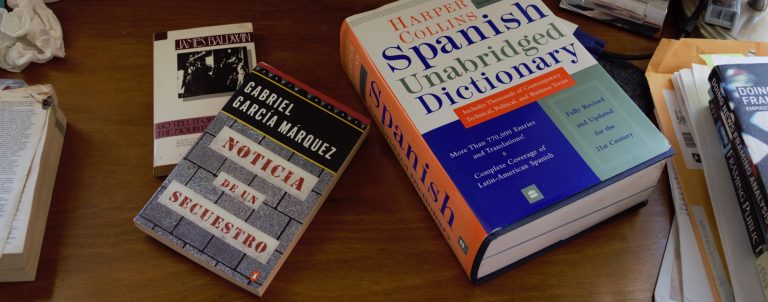By Ian Round
Maryland public high school students will soon be able to earn a credential certifying their literacy in a second language to employees and universities, but concerns have been raised that immigrant students, already proficient in a second language, are less likely to benefit than native English speakers.
The credential, known as the Maryland Seal of Biliteracy, faces a public comment period beginning Oct. 28 and ending Nov. 28. On January 24, 2017, the regulation governing the Seal will be formally presented by the Maryland State Department of Education (MSDE) to the Maryland State Board of Education for adoption. Maryland Governor Larry Hogan (R) signed the Seal of Biliteracy Act into law on April 26, and gave the MSDE responsibility for implementation, definition of terms, and qualifying standards.
Maryland joins Washington D.C. and 21 states who offer the seal. California was the first to establish it, in 2011, and the coalition Californians Together encourages other states to implement it. Maryland counties will have the power to choose to offer the seal, but an individual school may not refuse to offer it once a county has opted for it.
To earn the Seal, students must demonstrate literacy in a language other than English by scoring a four or higher on an Advanced Placement test in that language, between five and seven on the International Baccalaureate test, or an intermediate-high on a test administered by the American Council on the Teaching of Foreign Languages (ACTFL). Graduation from a Maryland public high school carries the presumption of English literacy required for the Seal.
The Seal is important because employers want to hire people who can read and write in multiple languages, according to Susan Spinnato, the Director of Instructional Programs for the Maryland State Board of Education.
The problem, according to immigrant rights activist Owen Silverman Andrews, is that English learners—generally, immigrant students with fluency in a native language who have learned English in the Maryland school system—will not have the same opportunity to earn the Seal as native English speakers.
“The way [the law is] written right now, the primary recipients will be native English speakers who live in wealthier areas and higher performing school districts,” said Silverman Andrews, who argues that it is wealthier parts of the state that generally have the greatest access to AP and IB curricula.
Silverman Andrews is also skeptical that there will be enough ACTFL testing locations to accommodate English learners.
Spinnato acknowledges that English learners are less likely to be enrolled in preparatory courses for advanced exams in languages other than English, but does not cite access as the principal reason.
“A lot of English learners don’t enroll in AP because they have a lot of other courses they have
to take in order to graduate,” Spinnato said.
But Carlos Beato, who founded the International High School at Langley Park, in order to address low graduation rates for English learners in Prince George’s County, said the Seal would greatly benefit his students.
“Being biliterate brings about so many opportunities to anyone that you have to wonder why more schools and districts are not pushing this idea out there, especially with our recent immigration surge,” Beato, who is also the principal of the school, said via email.
“When I think about my students I think about all of the knowledge they possess in their native language and how ultimately they transfer over those language skills into English. If they are not literate in their native language, it becomes more difficult for them to learn a second language,” he added.
Beato said 90% of his Spanish-speaking freshmen were able to earn a three or above on the AP Spanish test. He said the seal “gives students a sense of empowerment and allows them to see themselves as being successful, [and] it reminds them that they are good at something and that they can easily replicate that in any content area.”
Like Beato, Spinnato does not believe the Seal would exacerbate educational inequality in Maryland.
“In my mind, this Seal is so welcome to English learners. This encourages them to maintain their proficiency in their heritage language and improve their English,” she said.
While ACTFL testing locations have not yet been established, Spinnato does not believe testing will be inaccessible to immigrant and minority students.
“I think it’s quite the opposite, actually,” Spinnato said. “We’re going to make lots of other options available. You don’t have to be enrolled in any class to earn the Seal of Biliteracy.”
Even if the benefits of Maryland’s version of the Seal of Biliteracy flow mostly to more privileged students, this national movement does nonetheless represent a dramatic break from the ‘English Only’ movements of the 80s and 90s, which aimed to establish English as an official language.
“This is the opposite of English Only,” Spinnato said. “This is English Plus.”
This story was originally published by OnBckgrnd.com, on Oct. 28, 2016.

